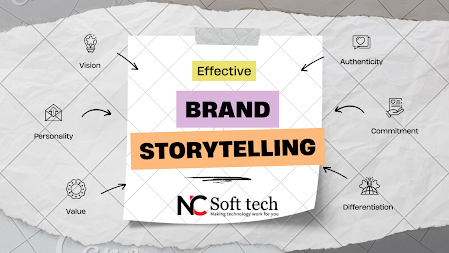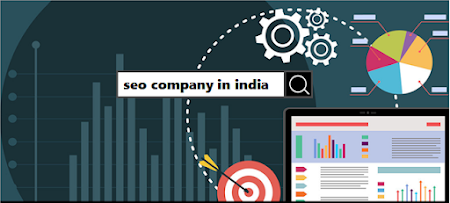Introduction
Consumer psychology is the study of how individuals make decisions and form opinions regarding products and services. In the realm of marketing and advertising, understanding consumer psychology is essential for creating effective campaigns that resonate with target audiences. By delving into the psychological factors that drive consumer behavior, marketers can develop strategies that not only capture attention but also lead to increased conversions and brand loyalty. In this article, we will explore the most effective ways to utilize consumer psychology in marketing and advertising, with a focus on influencing consumer decisions and building lasting connections.
Understanding the Power of Emotional Appeals
One of the fundamental principles of consumer psychology is the role of emotions in decision-making. People often make choices based on how they feel, rather than a rational evaluation of facts and figures. Marketers can tap into this by creating emotionally resonant campaigns. For instance, commercials that evoke feelings of happiness, nostalgia, or even fear can have a profound impact. This emotional connection helps build brand affinity and makes consumers more likely to choose a particular product or service.
Social Proof and the Principle of Consensus
Consumers often look to others for guidance when making purchasing decisions. The principle of consensus suggests that people tend to follow the crowd, assuming that if a large number of others are doing something, it must be the right choice. In marketing, this concept is harnessed through social proof, which includes tactics such as customer reviews, testimonials, and showcasing product popularity. By highlighting the positive experiences of others, marketers can influence potential customers to follow suit.
The Scarcity Principle
Scarcity is a powerful motivator that plays on the fear of missing out. When products or offers are framed as limited in quantity or time-bound, consumers are more likely to act quickly. Marketers can use this psychological trigger by using phrases like "limited time offer," "only a few left," or "while supplies last." Scarcity creates a sense of urgency, compelling consumers to make decisions sooner rather than later.
The Reciprocity Principle
The reciprocity principle is based on the idea that when someone does something for us, we feel obliged to return the favor. In marketing, this principle can be applied through tactics such as free samples, giveaways, or exclusive offers. By providing value upfront, marketers can trigger a sense of indebtedness in consumers, encouraging them to reciprocate by making a purchase or engaging with the brand.
Cognitive Biases and Decision-Making
Cognitive biases are inherent flaws in human decision-making processes. Marketers can leverage these biases to their advantage. For example, confirmation bias leads people to seek out information that confirms their existing beliefs. Marketers can use this by crafting content that aligns with consumers' preconceived notions and values, making their products or services seem like the natural choice. Other cognitive biases, like anchoring (relying heavily on the first piece of information encountered), can be exploited by strategically presenting pricing information or discounts.
Personalization and Tailored Experiences
Personalization is a key driver of consumer psychology in modern marketing. People respond more positively to messages and products that are tailored to their individual preferences and needs. By collecting and analyzing consumer data, companies can create personalized experiences through email marketing, product recommendations, and even website content. This not only increases engagement but also enhances customer loyalty and satisfaction.
Storytelling and Brand Narratives
Humans have an innate affinity for stories. Marketers can capitalize on this by crafting compelling narratives around their products or services. Storytelling helps create an emotional connection between the brand and the consumer, making the product more memorable and relatable. It also allows consumers to see themselves as characters in the brand's story, fostering a sense of identity and belonging.
Priming and Subliminal Messaging
Priming involves exposing consumers to certain cues or stimuli that influence their subsequent decisions. This can be achieved through subtle messaging, imagery, or even colors in advertising. For instance, using warm colors like red and orange can elicit feelings of urgency, while cool colors like blue and green convey calmness. Marketers can prime their audience to associate specific emotions or ideas with their brand, which can influence future choices.
Gamification and Behavioral Incentives
Gamification is a strategy that taps into people's competitive and achievement-oriented nature. By incorporating elements of games, such as points, challenges, and rewards, into marketing campaigns, companies can engage and motivate their audience. This approach can be particularly effective in retaining and engaging customers, as it transforms mundane activities into enjoyable experiences.
A/B Testing and Continuous Optimization
Finally, no marketing strategy is complete without measurement and adaptation. A/B testing is the process of comparing two or more versions of a campaign to determine which one performs better. By constantly experimenting and optimizing, marketers can fine-tune their strategies based on real-world results, ensuring they are effectively leveraging consumer psychology.
Conclusion
Consumer psychology is the cornerstone of successful marketing and advertising. By understanding the psychological triggers that influence consumer decisions, marketers can create campaigns that resonate with their target audience. Emotional appeals, social proof, scarcity, reciprocity, cognitive biases, personalization, storytelling, priming, gamification, and continuous optimization are just a few of the many strategies that can be employed. By harnessing these psychological principles, marketers can not only capture attention but also build lasting relationships with consumers, leading to increased brand loyalty and business success.




